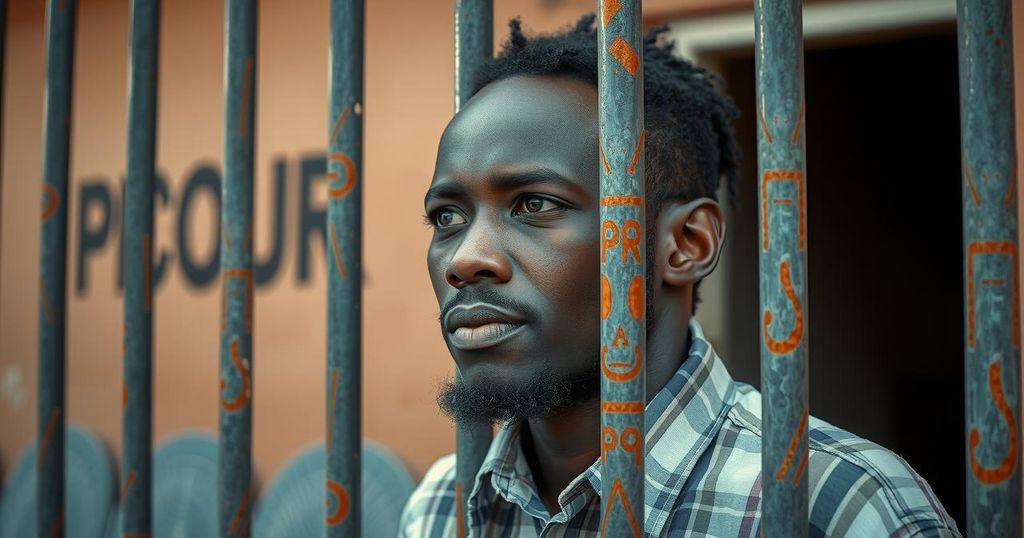Issa Kaou N’Djim Sentenced in Mali: Rising Repression Amid Political Crisis
Issa Kaou N’Djim, a political figure in Mali, was sentenced to two years in prison for critical remarks about Burkina Faso’s military regime. This reflects escalating repression in both Mali and Burkina Faso, exacerbated by the recent disappearance of opposition figure Ibrahim Naby Togola. These events signal dangerous trends in press freedom and political dissent in the region.
On Monday, a Malian court sentenced Issa Kaou N’Djim, a political figure and former supporter of Malian junta leader Assimi Goita, to two years in prison, with one year suspended, for critical remarks concerning the military government of Burkina Faso. The comments, made during a broadcast on Joliba TV News, prompted the closure of the station in November and a subsequent six-month ban. In addition to the prison sentence, N’Djim was fined 1 million CFA francs, equivalent to approximately $1,600, by the national anti-cybercrime office. This ruling occurred shortly after the mysterious disappearance of opposition figure Ibrahim Naby Togola, further raising fears regarding the current political climate in Mali and its neighbor Burkina Faso, both of which are under military rule.
Mali’s recent history has been characterized by a transition to military governance following coups in 2020 and 2022. The ruling military regimes in both Mali and Burkina Faso have enacted stringent measures against the press, resulting in the suspension of various media outlets while silencing journalists and critics alike. N’Djim, who was once a vice president of Mali’s National Transitional Council, has faced legal challenges previously, including a six-month suspended sentence in December 2021 for making remarks deemed subversive on social media. His current imprisonment appears to reflect the ongoing repression of dissent in the Sahel region, where the military governments are attempting to maintain control amid political and security crises.
The political environment in Mali and Burkina Faso has become increasingly strained since both countries transitioned to military rule following coups. As these regimes combat various internal and external challenges, they have adopted oppressive tactics against dissenters, journalists, and political figures. This has resulted in a climate of fear and uncertainty, with reports of arrests, disappearances, and media censorship becoming prevalent. The recent developments concerning N’Djim and Togola highlight the compounded risks faced by political opposition in the region, as the military governments seem to prioritize stability over civil liberties. Furthermore, the formation of the Alliance of Sahel States (AES) by Mali, Burkina Faso, and Niger underscores a unification of military-led efforts against perceived threats to their regimes.
The incarceration of Issa Kaou N’Djim reflects the broader pattern of repression witnessed in Mali and Burkina Faso under military rule. His sentencing, coupled with the disturbing abduction of opposition figure Ibrahim Naby Togola, emphasizes the precarious state of democracy and freedom of expression in the region. The military governments’ increasing hostility towards dissent poses significant concerns for the future political landscape in both countries, potentially stifling any moves towards returning power to elected civilians.
Original Source: www.voanews.com








Post Comment